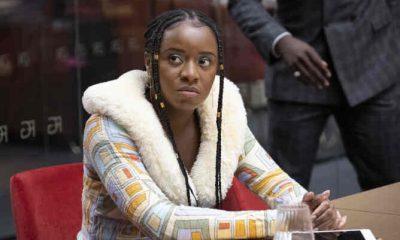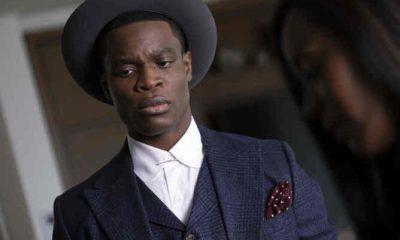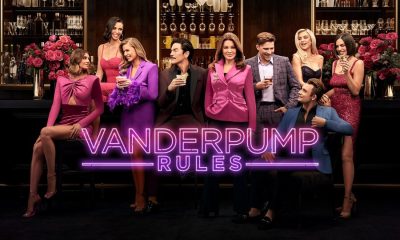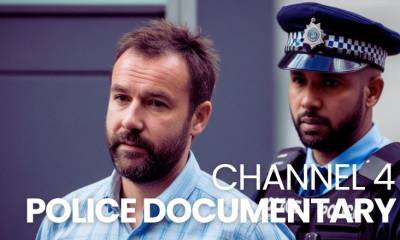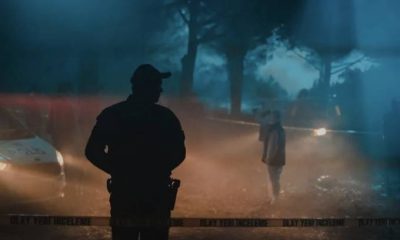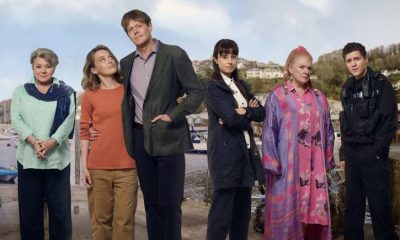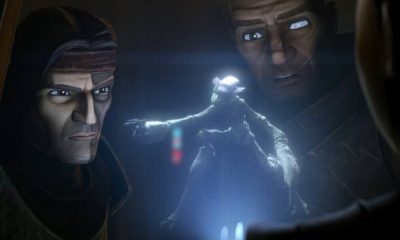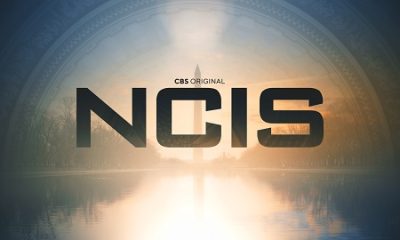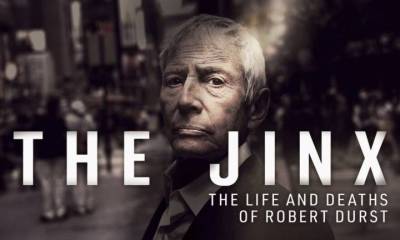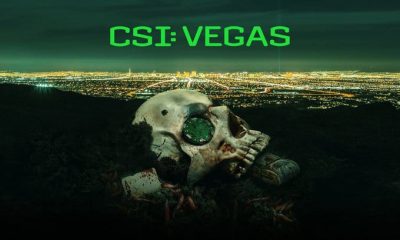Interviews
Ragdoll | Interview with Freddy Syborn (Writer)
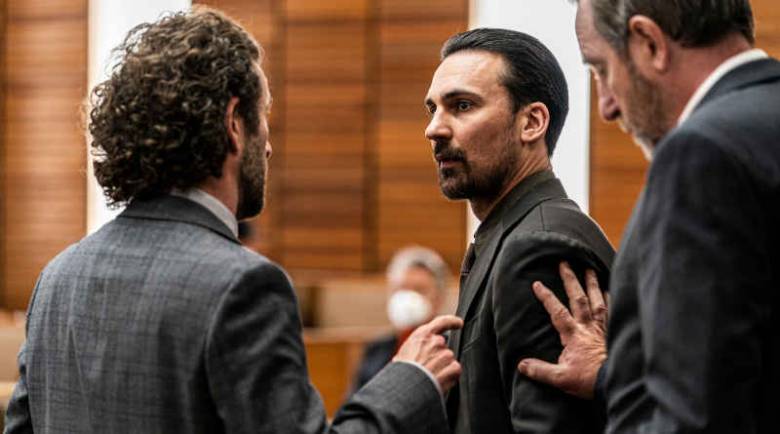
The series is based on the first novel from Daniel Cole’s Ragdoll trilogy. How did the project start for you, and how did it develop?
It began when Sid Gentle sent me the book. I read it and I thought, “My God, this is bananas!” Daniel Cole has got such a gruesome imagination. Not only does the discovery of a dead body stitched together from six victims make a compelling start, but it also has a dark sense of humour and doesn’t take itself too seriously. It’s also got these characters which drive the mystery, so I wanted to bring those relationships out as much as possible to keep the audience invested and grounded as the story goes wild. The first goal was to explore the friendship between Rose and Baxter and to think about the ways that their relationship was on one level strangely innocent, and on another level essentially poisoned by institutionalisation and made impossible by the jobs they do. These people need each other so much, but they’re the best thing and the worst thing in the world for each other. That was the hook that got me into thinking about the story.
What challenges did you face when it came to adapting it for television?
It’s a genre story, so you have to find a way to satisfy the fans. It had to go harder and faster and stranger and weirder on that genre level with the deaths and the gore, but at the same time it has to be grounded in the characters. For inspiration, I watched Bong Joon -ho, or the neo -noirs coming out of China particularly, or Hong Kong or Japanese cinema. I watched a lot of Beat Takeshi films, because they have such intensity and such graphic genre violence, but they also have a sense of the real world and real characters in a way that doesn’t feel forced. In Joon -ho’s Memories of Murder – that was a big influence, which I’m sure will be obvious to anyone who watches the show – you have such different styles within not just the same movie, not just within the same scene, but within the same shot. That’s how he gets away with it, by not going, “Oh this is a dramatic scene, this is a comedy scene, this is a hard bit, and this is a funny bit.” It’s all within the same tone, the same shot, the same exchange, the same look. You have those changes of tone constantly, which is what I loved about it.
Can you talk about the relationships between the main characters?
Rose has been deeply traumatised by another serial killer case in this very violent version of London, and he’s back on the job. He’s in denial about how much he’s been hurt and damaged by that case, so as much as he’s a complex hero, an anti -hero, I think different audiences will feel differently about him. Baxter is probably even more in denial. Although she’s been promoted now to a position above him, she begins the season wilfully blind to the extent of the damage the previous case caused. That’s not entirely her fault, because they work in an institution that is all about ‘might is right’ – the police can’t admit to weakness or fallibility, because then the whole house of cards comes crashing down. Rose is also a victim of the institution that he works in, and he’s a victim of a culture which punishes weakness, transparency and honesty. While he is a version of the ‘maverick cop’ stereotype, it’s important to hold that myth up to some scrutiny and to find the reasons for his actions, and to say that those actions are wrong, and to see the consequences that those actions have – particularly on Baxter, whom he’s basically in love with and trying to protect, and who is his only stake in the world. Rose’s decisions are a consequence of, on a personal level, his trauma, his love for Baxter, and his desperation to preserve that relationship. But they’re also the consequence of a man who’s got away with so much for so long.
He’s been given a second chance, a third chance, a fourth chance, a fifth chance, in contrast to Baxter, who has to be twice as good as everyone around her. There are lots of people who would like her to fail, and if she does, she doesn’t just fail for herself, because she’ll be used as an excuse to hold back other women. Rose doesn’t have any of that responsibility, but it’s not something that he’s equipped to recognise at crucial points. That tension between the two of them was something that I wanted to mine, this idea that on one level their relationship is very pure – he loves her deeply, and she loves him – but they can’t admit that because they need each other professionally. Their coping mechanism is their shared sense of humour, but at the same time there’s an imbalance of power, status and hierarchy between them, so they don’t really stand a chance.
What does Baxter uncover as the series unfolds, and how does she change?
Baxter comes from a military background and was a bit disconnected from people like her, always travelling, growing up on army barracks, so she wanted to join an institution because that’s all she’s known. She’s tough, has a sense of duty, cares for her community and the people around her. She wants to protect them, to serve, to do all of those good things, but there’s also a desire to bury selfknowledge. She doesn’t want to know what she knows. There’s a poem by Thom Gunn called Carnal Knowledge that goes, “You know I know you know I know you know.” The poem is about sex, but it equally applies to all intense and painful relationships. It’s apparent from the beginning that Baxter is repressing that knowledge that she knows that they know that she knows that she can’t fail, and she has this façade which means she only really shows her vulnerabilities to Rose.
As a writer, wanting to dial up that vulnerability, that sense that she shows him everything, and for the audience to know that he’s not telling her the truth in return, that lack of reciprocity is very painful. Her gut tells her that there’s something Rose isn’t telling her, so she’s not only burying her own vulnerabilities, she’s also burying those nagging questions about Rose. You’re always on this journey of she has to get to the truth, and trusting herself in a way that she’d never done before. She represses herself, because she tells herself that’s the only way to get the job done. By the end of the season, she has to do things on her terms, but it becomes a crisis of faith. Who is she going to believe? Who is she going to trust? Thalissa conveys all that beautifully.
How does Edmunds fit into the story?
I was really surprised by how much she reflects the audience’s point of view, and a lot of that comes down to how brilliant Lucy is. She carries herself with such confidence, but without ever losing the sense of Edmunds’ insecurities or her nervousness. Edmunds wants to know everything. That’s obviously a good thing for a detective, but it’s a problem when she’s working with Rose, who is a liar, and very untrustworthy. She has a very American quality of being very professional and very clear and open about their ambitions, their intentions, what they think of you, and what they need from you, which is completely opposite to the way the British operate. Baxter and Rose bury things. There is so much that isn’t said, everything is inferred, or laughed away or shrugged off. Edmunds powers on with very clear statements about herself, what she’s doing, why she’s doing it. That unnerves, disarms, and makes awkward everyone around her in a way that isn’t her fault.
She’s equipped with a completely different language for understanding her place in the world, someone who knows how to say to a superior officer, to a man, “I don’t respond to that tone of voice. I don’t operate well in these conditions. I would like you to stop doing this, or I need something more from you to do that.” Someone who, unlike Baxter, can articulate their boundaries, but it was important not to feel like Edmunds was the irritating rookie. Edmunds is often right. She’s motivated by the desire to know at all costs – she wants to know the truth and she can’t let sleeping dogs lie, which is a problem. She doesn’t have that many boundaries at all, but a lot of her life is a bit of a front. She’s trying to seem like she’s got it all together, but as the series goes on we see how much she compartmentalises, how much she keeps locked down.
It’s useful to be able to cut to someone who’s watching Rose, watching Baxter, watching Simmons and these lunatics and go, “Oh my God, someone gets it!” Because so much of it comes down to Rose’s mental wellbeing, no one wants to ask the question, “Wait, is this guy okay? Should this guy be on the job?” Baxter doesn’t want to know, his other colleagues really don’t want to know because it’s a bit awkward, but Edmunds is saying, “Wait, wait, wait, what? You’re really going to do this case?” She’s there to ask those questions. She’s smart and she shows a lot of grit, but her problem is that she doesn’t know when to stop. There’s an insecurity underneath her behaviour, and it’s connected to the fear of not knowing.
She’s doing this job because it will help her get further in her career down the line, but it gets under her skin, and that doesn’t bode well for her. But she’s compelled to do this job. The fundamental irony of Edmunds is that she’s someone who needs to know, but who knows so little about herself. To an extent that’s true of all three of the characters to different degrees. In stories about police officers, detectives, noir, it’s all about the detective who doesn’t know themselves. Edmunds is a spin on that story.
How do you describe the style, the tone or the look of the show?
What I like is character and dynamism. The humour is a coping mechanism that the characters use to deflect from the grotesque situations that they find themselves in. I re -watched Silence of the Lambs, which was obviously such a huge movie for the genre. What struck me in Silence of the Lambs was Jonathan Demme’s humanism. The scene that I remember most clearly loving in Silence of the Lambs is as Clarice goes down into the basement at the end, she kicks the door open and it rebounds off the wall and hits her, so she kicks it again and it rebounds off the wall and it hits her again. That small detail shows her frailty, but it’s funny and it’s truthful and it doesn’t over -egg it. It’s a humanising moment in this otherwise lurid, gothic and mad story. Those little moments really appeal to me. The humour needs to come from the characters, their pain, their fear and their trauma, as much as it comes from the absurd situations they find themselves in. The characters are consciously trying to be funny with each other. You’re seeing these people trying to amuse each other and themselves, trying to use laughter as a mode of selfdefence, as a way of attacking each other. Humour is a tool for different jobs in the show. The intention was always to say yes, they can be funny, but there’s a reason for it. When you watch a Hitchcock movie or a Bong Joon -ho movie, I think they understand that a laugh and a scream are different valves for the same energy. Laughs don’t only puncture the tension; if they’re done well, they can also escalate it.
I also watched a lot of Korean movies, a lot of Japanese movies, and films from Hong Kong. I really like the way that they didn’t sweat the fact that things can be funny and scary. They did less to marry those genres; they exist in the same world, in the same scene. They go to insane places, but somehow they get away with it. Beat Tekeshi does that in a really interesting way. So they were big influences.
There are a lot of deaths.
Yes, there are a lot of deaths! They’re different to the ones in the book. In episode one and two the deaths are the same. Episode four is a riff on what’s in the book, but we invented quite a lot of it too. The deaths came from who I though the villain was, the villain’s interests, and the villain’s personality, and extrapolating the most horrific tortures imaginable from that. I don’t really enjoy gore, so there were times I felt uneasy, but I think that’s what the genre is about. The challenge was to make it feel believable and entertaining.
In the first section of the book, someone dies in a very gruesome and surprising way, and you have to go from there. We’ve seen this horrific body, we’ve seen this extraordinary death, and you have to keep going. You can’t then slow things down, because the audience will feel short changed. It’s part of the pleasure of watching this stuff, seeing gruesome and thrilling things. I’ve never written that sort of thing before. I don’t really watch horror movies where it’s just blood and guts and relentless pain and misery, but I do enjoy Hitchcock. I enjoy the slightly more cinematic, more playful extremes, so it was horribly liberating to think about how our villain would kill people and what horrific old torture methods he would reboot for the 21st century, because it all had to come from who I thought this killer would be, who he was, what he liked, his fascination with history.
The killer uses history to justify his monstrous cruelty, which presented us with an opportunity to think about how history is used by terrible people to put a fig leaf over their narcissism. It’s also mad and really horrible. There’s fire, there’s acid, there’s strangulation, there’s animals, there’s a sort of do -it -yourself feel to some of it. There are disgusting masks, there are drugs and hallucinogenics and IEDs, lots of water, people drowning in blood… it’s a lot. It’s all quite hardcore.
Were you involved much in the filming process?
I’m often on set because it has a distinctive rhythm, so it’s useful for me to be there. Occasionally, we’ll need to restage something or fix a problem that comes up on the day. These actors are working so hard, because we’re filming it in a very tight timeframe, so I wouldn’t go up to the director on set and tell them, “I don’t like that angle,” or, “I don’t like this,” or, “I don’t like that.” I’m well behaved. Every so often I’ll throw in an idea, but hopefully not to the point where everyone else is going mad when they see me coming. But there’s a point at which the script started to feel quite dead for me, and it started to feel like someone else’s party. As a writer, it’s important to be able to acknowledge that. As much as it’s worth fighting for the things that you think are very important, it’s not going to help anyone if you’re clinging on to things, and I think these actors are really brilliant at making the roles their own. I’m very happy to watch them. They did a brilliant job.
What have you enjoyed most about this project?
What I enjoyed most about Ragdoll was the collaborative process. The central challenge was trying to make something that was gruesome and genre and exciting and fast moving, but driven by character on a level that I hope is hopefully quite moving. I didn’t want to write something that I felt like I’d seen before, something that was governed by Hitchcock’s rules rather than the rules of TV cop shows. Hopefully it ticks those boxes!




